Destiny 2 just lost a piece of its soul – and one of the things that kept me coming back every year
Like Marty O’Donnell before him, Michael Salvatori was a vital organ in the complicated beast that is Destiny. Without him, it’ll be less magical.
What keeps you coming back to Destiny 2, year in, year out? Is it the best-in-class gunplay? The labyrinthine lore? A sense of Stockholm Syndrome for a game that’s already eaten away at a decade of your life? A bit of all of the above? It’s nebulous, isn’t it, this game – this strange hybrid of MMO and FPS. From the moment I took up the mantle of Guardian, blinking to life in the plaid light of the Cosmodrome with Peter Dinklage’s tired voice beckoning me to fight, I knew Destiny was special – the sort of game I’d be playing for years.
Those heady days of the first beta, way back in 2014, felt formative for me as a gamer. As someone that had (mostly) only played PvP with other players, I was dubious about the largely co-op nature of a ‘Halo-like’ shooter. Could Bungie really attain its lifelong dream and make the intergalactic space opera stand on its own two legs, separate from the scaffold of Xbox’s most iconic mascot? Could it really provide the sort of experience I’d heard World of Warcraft players harp on about for generations; give me a platform to graze on for months, years, decades? Yes, it could.
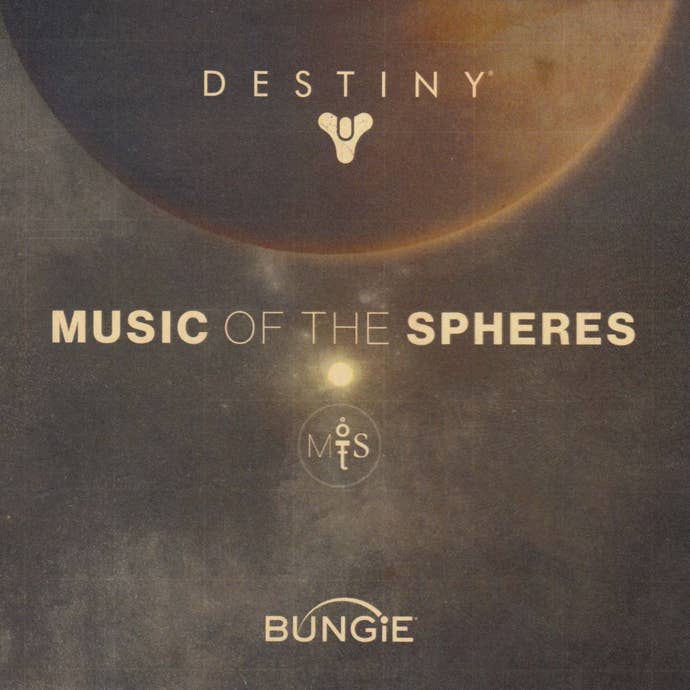
Its Arc-powered grip on my cortex was fuelled, in no small part, by the sound of this peculiar universe. Every single gun had a telltale call that seemed to bake itself into your frontal lobe; whether it was the satisfying ‘ka-ching’ of the Monte Carlo imbuing your fists with a deadlier punch, or the dreaded hum of a Sweet Business spinning into life around a blind corner in the Crucible, the sound design of Destiny proved to me that – yes – sound was as important in establishing tone and mood as anything else in a developer’s toolbox.
But, underlying this and somehow always complementing it, was the soundtrack. I’m not talking about that abysmal Paul McCartney song that somehow, retroactively, made every Beatles song ever written worse, but the original Destiny OST: the 44-track opus that would mark Martin O’Donnell’s final work for Bungie.
Untethered by the ‘two-to-three minute’ necessity of his work on Halo, O’Donnell worked cosmic magic with this score. The musical background of Destiny became as integral to its identity as those sprawling skyscapes, those monolithic buildings, that strange, disjointed narrative breadcrumbed around the solar system that unfurled erratically and unpredictably.
But Martin O’Donnell wouldn’t get to build on these celestial foundations. He was kicked out of Bungie, with no public reason given, on April 11, 2014 – before the game actually launched. What came next was messy, bitter, and unrelentingly un-magical; an unpleasant taste of the legalese and lawyer-speak that underpins many creative endeavours in this weird little industry. Activision, it’s stated, played a large part in O’Donnell’s forced exit. Quelle surprise.
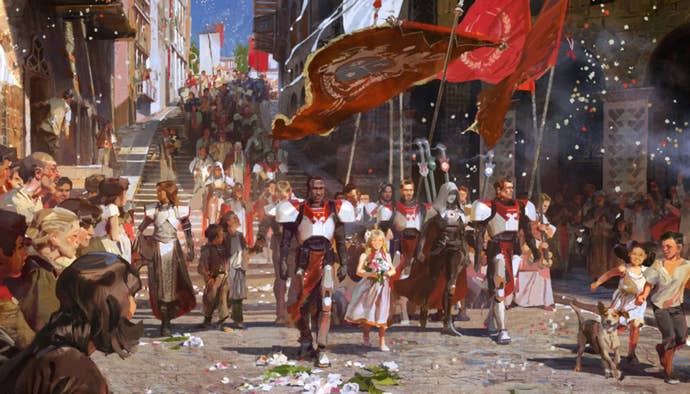
So. Destiny lived on, weathering dubious expansions and some behind-closed-doors exec shuffling that’d probably make an episode of Succession look tame. O’Donnell, obviously, left a void in the heart of the sound team – but other veterans survived the purge and had the experience to step in, carry the mantle, play the hero. The most notable name? Michael Salvatori, a long-time confidant and musical collaborator of O'Donnell, a name who you’ll recognise on Bungie projects as far back as Oni and Myth.
O’Donnell, listed as the lead composer on Destiny 2 and its associated expansions, understood the brief wholeheartedly. If you ever heard the original main menu music on Destiny 1, you’ll understand: that motif, that theme, manifests every single time you – the Guardian – does something heroic. As it happens, that’s quite often. The bold, heroic Guardian theme is present in movements that play when you’re fighting the Hive, the Cabal, the Fallen, the Taken, the Vex. It morphs, and shifts, and sometimes it's understated, and sometimes it slaps you about the face with its presence, but it’s always there: the through line that connects every last bit of chaotic Destiny lore.
Salvatori and his team didn’t miss a beat (no pun intended) in taking the baton from O’Donnell and running, inexorably, forward. Inner Light (the Destiny 2 title track) felt like a statement; that the team would take these immovable foundations and build upon them – respecting what came before and layering more on top of it. Just like Destiny 2 did over the scarred earth of the first game. But, in Destiny 2, this main theme is in minor – heroic, but tinged with loss – an echo of the game’s themes, but also a eulogy to fallen comrades. The next track in the game, Rise, nearly supplants that original Guardian theme, and is still used today; a reference to something that’s come before, with its own identity and ethos. Something that used to be a key part of Bungie’s identity. Alas, it seems, not so much anymore.
.jpg?width=690&quality=70&format=jpg&auto=webp)
Per the layoffs that Bungie conducted at the end of October, Salvatori is out, now, too. Another essential part of Destiny’s legacy cast overboard to keep the sinking ship afloat a little while longer. Another artisan of the form used up and spat out, before he could see a project over 10 years in the making through to its end.
From its inception through to today, Destiny's soundtrack has been a success because it’s such an aural feast. Because it has cleverly – almost subconsciously – excelled at telling us the story as we listen, unbeknownst, absorbed in a game that’s otherwise so obtuse in how it delivers narrative. Through motifs, timing, and the simple understanding that sometimes ‘less is more’, Destiny’s music has been as dear a companion to us on our journey thus far as our indefatigable ghost.
And as Bungie unceremoniously says goodbye to one of its architects, I find myself questioning whether I have the strength or desire to join the fight again. What’s the point of getting your eyes up, Guardian, if there’s no love for your ears?
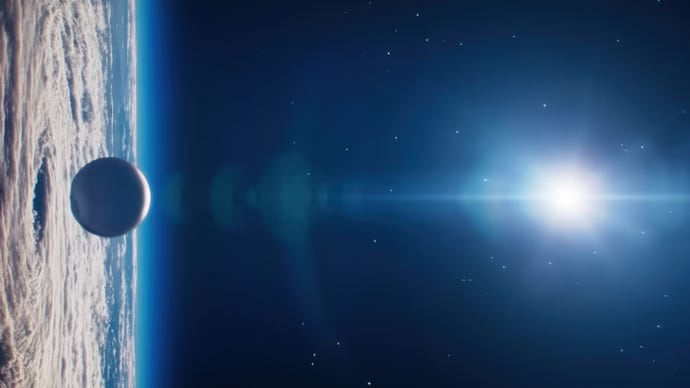

.jpg?width=291&height=164&fit=crop&quality=80&format=jpg&auto=webp)
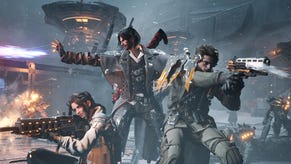
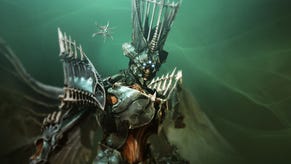

.jpg?width=291&height=164&fit=crop&quality=80&format=jpg&auto=webp)


